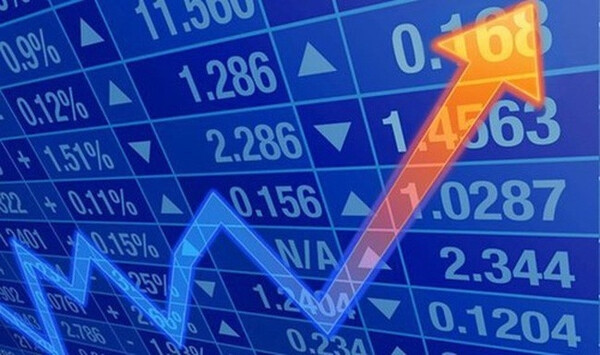
Following U.S. President Donald Trump's recent rollback of some of the tariff policies he announced earlier this month, several Asian stock markets are demonstrating stronger recovery momentum compared to their U.S. counterparts. Notably, India, South Korea, and Japan are showing signs of rapidly rebounding from the "tariff shock," while Vietnam continues to exhibit a more precarious trajectory, according to a Nikkei Asia report on April 24th (local time).
The Indian stock market has displayed remarkable resilience. Despite President Trump's declaration of April 2nd as "National Liberation Day," accompanied by a vow to impose sweeping "reciprocal tariffs" on trading partners, India's benchmark Sensex index has since climbed by over 4%.
Trump's initial announcement triggered a significant sell-off in global stock markets, fueled by concerns about the U.S. economy and prompting an outflow of investment from U.S. assets, including equities and the dollar. However, renewed optimism surrounding a potential easing of trade tensions between Beijing and Washington has helped to revive investor sentiment.
Indian stocks found their footing on April 7th and have since staged a robust recovery, buoyed by gains in key Sensex constituents such as Reliance Industries and HDFC Bank. Saito Makoto, an India-focused economist at NLI Research Institute, suggests that the composition of India's benchmark index, heavily weighted towards non-cyclical sectors like financial services, pharmaceuticals, and internet service providers, has shielded it from the direct impact of U.S. tariffs.
Furthermore, Saito notes India's advantageous position due to the government's "Make in India" initiative, which has already imposed substantial tariffs on imported goods, providing greater flexibility for policy adjustments.
The recent meeting between U.S. Vice President J.D. Vance and Indian Prime Minister Narendra Modi, aimed at strengthening bilateral ties and potentially forging a trade agreement, has also bolstered investor confidence. Data from the National Stock Exchange of India indicates that foreign portfolio investors have injected over $2 billion in net investments into Indian equities in the past five trading sessions.
In South Korea, the Kospi index had largely recovered to pre-"tariff shock" levels by April 23rd, driven by gains in defense stocks such as Hanwha Aerospace and LIG Nex1. However, blue-chip giants Samsung Electronics and SK Hynix are still trading below their pre-tariff levels.
Seo Dan, Head of Global Markets at BNP Paribas Korea, attributes this recovery to the return of foreign investors with combined currency and equity strategies, who are capitalizing on the perceived undervaluation of Korean markets following the initial capital outflows.
He also believes that increased transparency in the U.S. political landscape has contributed to the rebound in market sentiment, noting that "the U.S. appears cautious about imposing tariffs on the technology sector, which has helped market sentiment recover."
Seo Dan further explains that "given the current tariff waivers and relatively lower tariff rates compared to neighboring countries like Taiwan, Korean stocks were better positioned for a rebound." However, the Taiwan TAIEX index remains down by approximately 7%, prompting a cautious outlook from Seo, who warns that it is "too early to conclude that this is a structural rebound." The Kospi index ended trading slightly lower on April 24th.
Similarly, Japan's Nikkei 225 index and China's mainland-listed blue-chip CSI 300 index have also largely shrugged off the "tariff shock."
On the morning of April 24th, the Nikkei index was up by nearly 1%, recovering close to 500 points. Naoya Oshikubo, Senior Market Economist at Mitsubishi UFJ Trust and Banking, reported increased investor interest in Japanese equities after meeting with investors, including those from Southeast Asia.
"Japan benefits from lower geopolitical risks and a stable domestic environment, which helps attract funds gradually moving away from the U.S.," Oshikubo stated. He added that while betting on auto manufacturers remains risky due to potential tariff impacts, non-cyclical sectors like real estate have performed quite well.
In China, analysts suggest that government-led "national teams" have played a role in stabilizing the market by defending against significant price declines.
Conversely, the U.S. stock market is facing pressure, with the Dow Jones Industrial Average down by over 6% and the Nasdaq Composite falling by 5% as investors grapple with concerns about a potential domestic economic slowdown.
This decline represents a correction in the valuation of U.S. stocks, which had enjoyed a prolonged rally fueled by strong earnings from mega-cap technology companies, including Apple and Amazon. According to BofA Securities' client transaction report, institutional investors and hedge funds collectively net-sold over $3.9 billion in U.S. equities last week.
Vishnu Raya, Chief Investment Officer at Eastspring Investments, noted in a report that Trump's tariffs "could prompt investors to further segment their assets across Asia, including China, India, ASEAN, and North Asia, to secure opportunities and diversification."
Hong Kong's stock market is also slowly beginning to recoup its losses. The Hang Seng index was significantly impacted by the global market downturn, experiencing its largest single-day drop since 1997.
The situation in Vietnam remains challenging. The Vietnam benchmark VN Index has plummeted by 8% since Trump's tariff pronouncements. With its export-driven economy, Vietnam potentially faces a substantial tariff burden of up to 46%.
Kota Hirayama, Senior Emerging Market Economist at SMBC Nikko Securities, points out that "Vietnam is not a U.S. ally and has limited room for trade negotiations." He further suggests that "China's argument that Vietnam serves as a conduit for Chinese exports to the U.S. to circumvent high tariffs will further complicate the situation."
The diverging performances of Asian and U.S. stock markets underscore the complex and uneven impact of trade policies on global economies. While some Asian nations are demonstrating resilience and attracting investment amid the shifting trade landscape, others, like Vietnam, face significant headwinds and uncertainty. The long-term implications of these evolving trade dynamics on global financial markets remain a key area of observation for investors worldwide.
[Copyright (c) Global Economic Times. All Rights Reserved.]






























